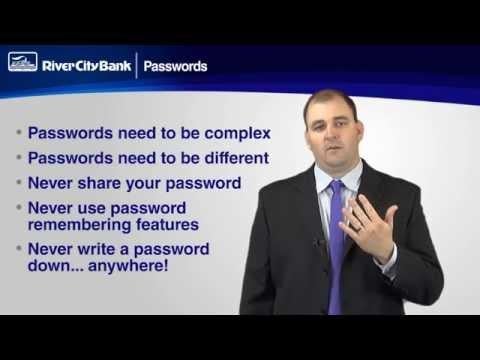With the recent cyberattacks on JPMorgan Chase & Co. and a handful of other financial institutions, it’s clear that banks are just as vulnerable as any business. Of course, this is nothing new. Since the advent of online banking, financial institutions have spent millions of dollars battling malware attacks.
In fact, the financial services industry ranks fifth among the top 10 industries for targeted attacks, according to the 2014 Symantec Internet Security Threat Report.
But compared to other industries, banks operate from a unique position, in that they have to focus intently on their own security, but also make sure their clients have the knowledge and tools to protect against computer criminals. Providing that protection usually comes down to a matter of security versus convenience.
“We’re trying to provide innovative banking solutions, but convenience cannot be our first priority,” says Eric Johnson, chief information officer for River City Bank. “We look at security first and foremost.”
Symantec notes that banks can employ various measures to strengthen their online security, such as:
- implementing security precautions on all mobile devices (including strong passwords)
- using encryption for all data
- protecting physical and virtual data centers with solutions that detect/prevent intrusions
- scanning regularly for vulnerabilities
But clients have a role to play, too. For small businesses who do online banking, Johnson recommends a three-tier process to help defend against cyber fraud.
1) Get educated early and often
The best kind of protection starts with prevention, but most small businesses don’t know where to begin. This is why education is critical. Employees and clients should know, for instance, why they need strong passwords or how to spot phishing emails. Your bank might be a starting point.
Find out if your bank provides consultation services or hosts conferences to help customers improve cyber security awareness. River City Bank offers annual cybersecurity training sessions and risk management follow-ups to certain customers. In these sessions, experts outline security best practices and discuss the importance of firewalls, antivirus software, system segregation and cyber security threats.
And with technology moving quickly, it’s crucial that online bankers stay up-to-date on current events related to cybersecurity. Websites such as staysafeonline.org, powered by the National Cyber Security Alliance, can keep you in the know.
2) Apply what you learn
Awareness is only the first step. You still have to put that knowledge into practice. One of the most important (and easiest) ways to protect yourself is by using stronger passwords.
In addition to changing your passwords regularly, Johnson advises users to avoid the “remember password” feature on web browsers, and never writing passwords down.
For more cyber protection tips, check out this top 10 list.
3) Embrace a little inconvenience
At some point, when it comes to online banking, business owners need to choose between security and convenience. River City Bank offers a program called Positive Pay, which allows customers to enter important check data (date, check number, dollar amount, etc) in the system before a deposit is made. Since checks have the same routing and account numbers, this extra layer of security can immediately reject a fake or altered check.
“It’s more inconvenient for business customers,” he says, “but it drops your check fraud dramatically.”
This is just one of the tools in the toolbox. But with cyber fraud on the rise, business owners who do their banking online can’t afford to sacrifice security for convenience.
For more tips on cybersecurity, check back next week for Russell Nichol’s November cover story, “Web of Thieves.” You can also stay in-the-know by signing up for our weekly newsletter, or becoming a print subscriber.
Recommended For You

Risky Business
How employees are opening doors to hackers
At first glance, the email appeared innocuous enough. All employees were being asked to change their passwords. Just click the link.

Passing Clouds
The debate over public and private clouds
Instead of sitting down to watch White Christmas or another streaming movie or TV show, Netflix online video users huddled around their television on Christmas Eve were greeted with an unfortunate message: the online content was unavailable.

Get Onto My Cloud
Moving to virtual space for software, storage and more
As a chief executive of a real estate and brokerage firm, Jason
Moulton faced some hard financial decisions in 2009.
Among the cost-saving measures Moulton implemented was to move
all operations to the clouds, or virtual, rather than physical
hardware and software.
As a chief executive of a real estate and brokerage firm, Jason Moulton faced some hard financial decisions in 2009.
Among the cost-saving measures Moulton implemented was to move all operations to the clouds, or virtual, rather than physical hardware and software.

Cumulous Data
The opportunities and hazards of cloud computing
While most businesses are postponing investments and stashing cash, at least one expense is expected to grow this year: information technology.




